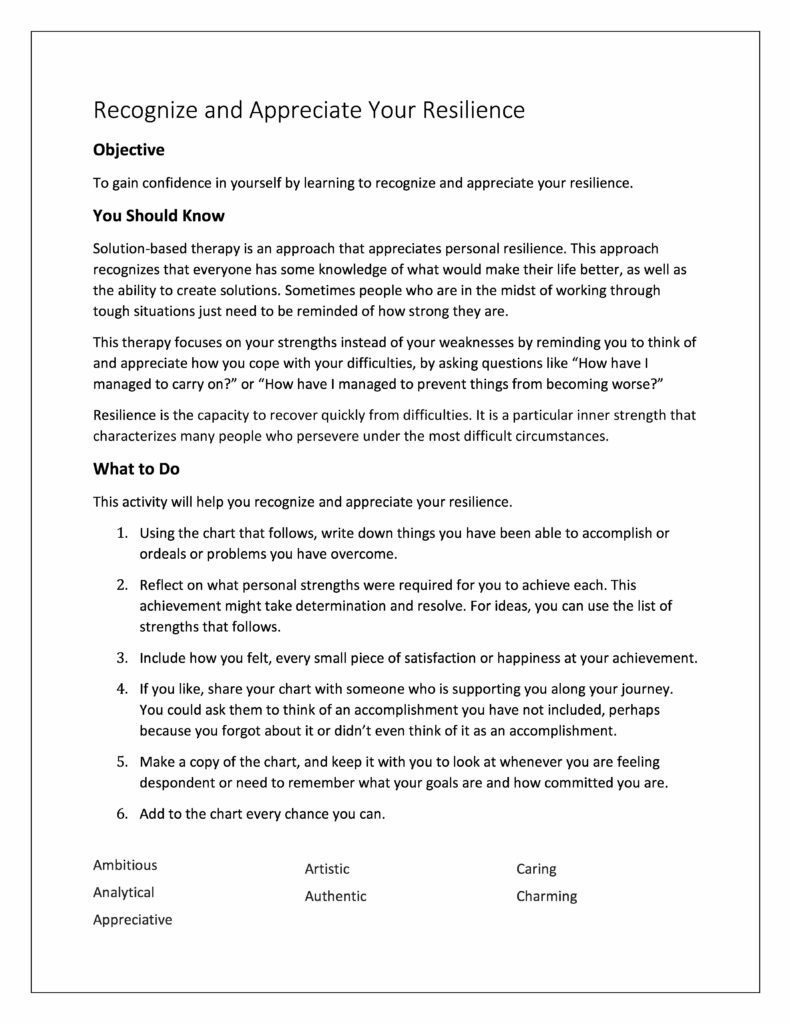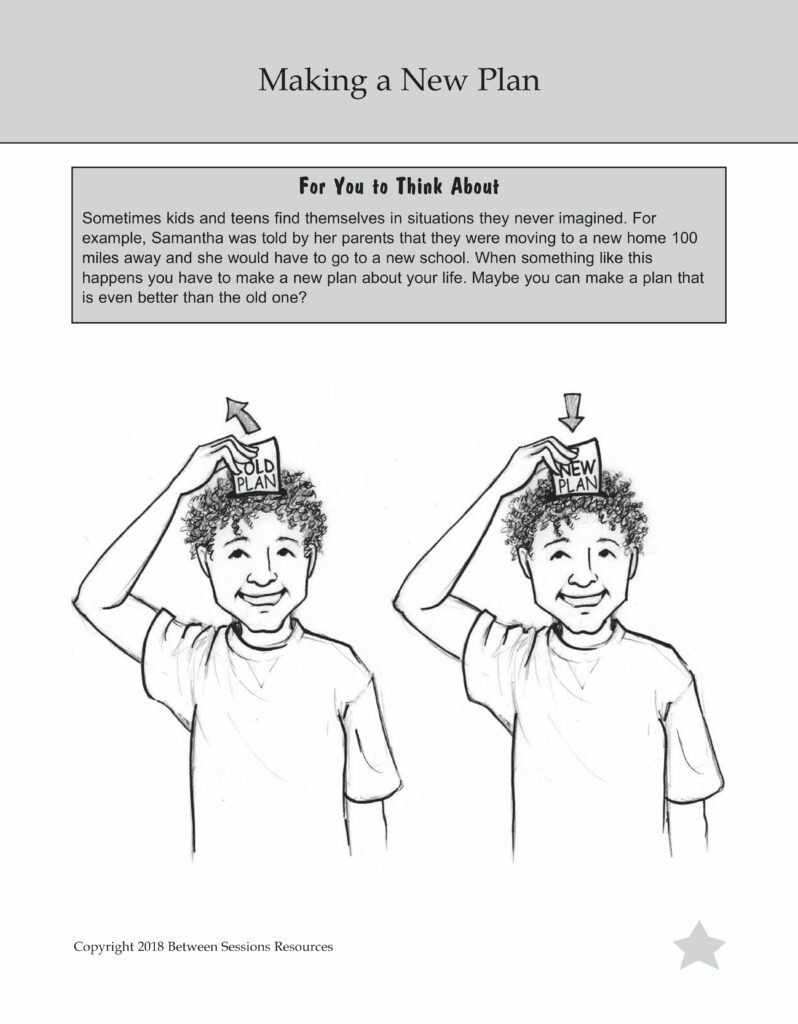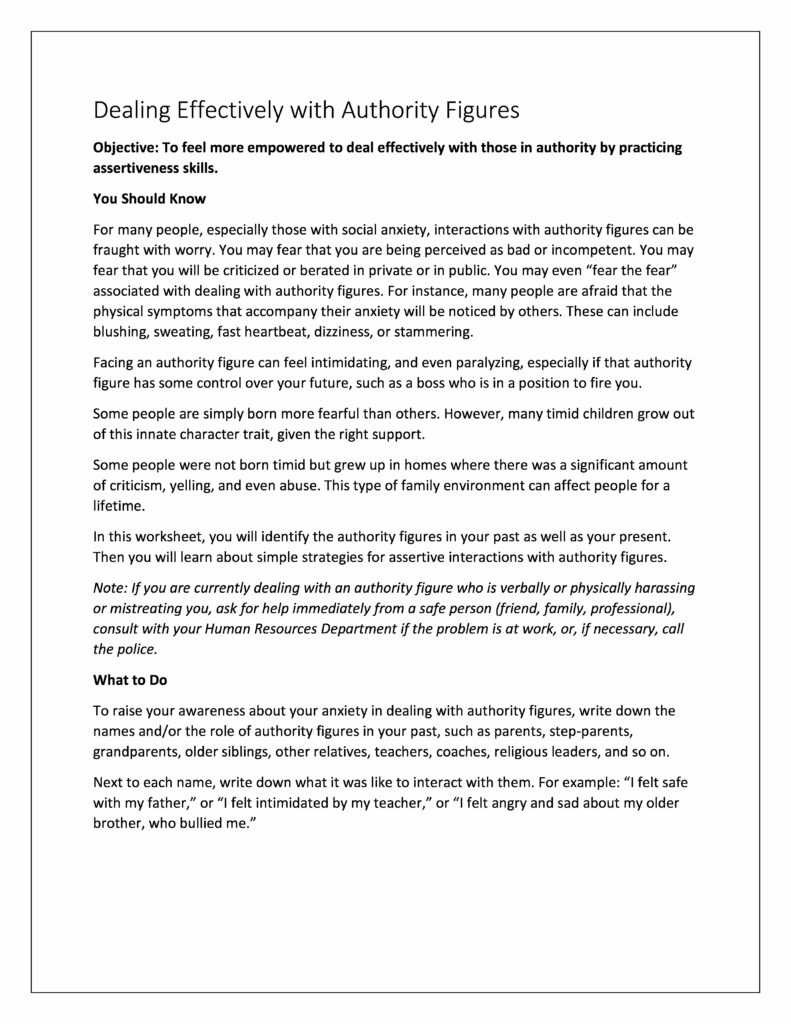Teens have a special way of communicating and learning about themselves, so we’ve made sure that all our therapeutic activities for teens are appealing and engaging to this age group.
To modify the tools, click the ‘Send to Client’ button by each tool to open the Psychology Forms Filler. You can then edit the tool as you see fit and either print it out or send it to a client to be filled out online. Click here for a tutorial on using the Psychology Forms Filler.
We’ve tried to address every teen issue we can think of, and more tools are added every week!
If you are looking for something you can’t find on this site, please let us know by clicking here and our team of writers, graphic artists, and therapists will custom-design it for you.
This worksheet is designed to help people understand how social media can affect their social anxiety. It asks people to keep track of the time they spend on social media and note the positive and negative effects it has on their real-life relationships. (1218)
This worksheet is designed to help people understand the concept of resilience and focus on the character traits that make them more resilient. (Solution-Focused, positive psychology, self-esteem, 1118)
This pocket guide from the UK Mental Health Association has some great ideas to help people help others. It also reviews studies showing how acts of altruism increases our own mental health. (altruism, RAOK, 0111)
The first step to reducing your worrying is to understand this behavior better by identifying the kinds of things you worry about, what triggers them, and how much anxiety they cause you. This worksheet asks you to keep a record of you worries for a one-week period and determine if there are any patterns to your worries and your anxiety. (GAD, Generalized Anxiety Disorder, 1218)
This worksheet directs children to be flexible in their thinking and to come up with a new plan if an old one doesn’t work. A great conversation starter for introducing the concept of flexible thinking. (ADHD, Asperger Syndrome, resilience, 1118)
This worksheet is designed to help people with anxiety disorders determine if they also need to seek treatment for depression. It explains the major symptoms of depression and links to an online screening for depression. It also asks people to keep track of how often they do activities that bring meaning to their lives and to assess the level of difficulty of this task as a possible indicator of depression. (GAD, Generalized Anxiety Disorder, 1118)
This worksheet is designed to help people determine whether their anxiety is affecting their physical health. The worksheet asks people to identify their physical health problems, note the frequency that these problems occur, and rate how these problems are affected by their worrying and anxiety. People are also asked to think about how changes in their health habits might improve their overall well-being. (GAD, Generalized Anxiety Disorder, worry, 1119)
This simple card game is designed to help kids talk about their common worries. It’s a great tool for individual or group sessions or even classroom discussions. (anxiety, 1118,
This worksheet encourages people to make a list of the reasons that they shouldn’t be using alcohol or drugs if they have problems with addiction. They are encouraged to create a list that would be visually appealing so that they will look at it often. (1118)
This worksheet is designed to help people reflect on how they deal with authority figures. It asks people to consider how they have dealt with authority figures as far back as their childhood, and how they are dealing with authority figures in the present. The worksheet also suggests a number of simple assertive techniques. (social anxiety, passivity, shyness, workplace issues, relationships, 1118).










